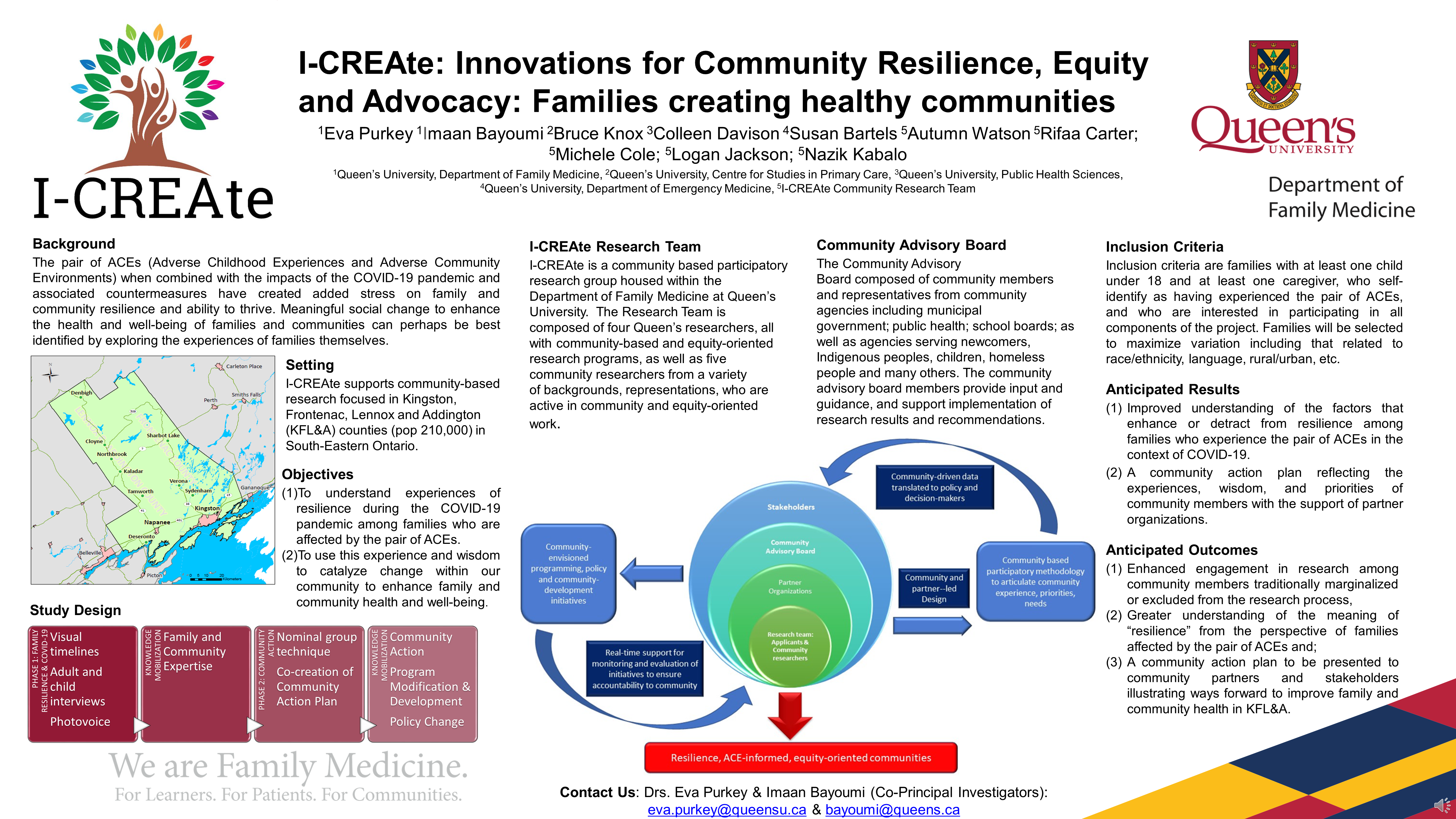PRP047: I-CREAte: Innovations for community resilience, equity and advocacy: Families creating healthy communities
Eva Purkey, MD, MPH; Susan Bartels, MD, MPH, FRCPC; Imaan Bayoumi, MD, MSc; Autumn Watson; Michele Cole; Colleen Davison, PhD, MPH; Bruce Knox, MPH; Rifaa Carter; Logan Jackson; nazik kabalo
Context: The pair of ACEs (Adverse Childhood Experiences and Adverse Community Environments) when combined with the impacts of the COVID-19 pandemic and associated countermeasures have created added stress on family and community resilience and ability to thrive. Meaningful social change to enhance the health and well-being of families and communities can perhaps be best identified by exploring the experiences of families themselves. This study is relevant to primary care providers, as resources to their communities. Objectives: (1) To understand experiences of resilience during the COVID-19 pandemic among families who are affected by the pair of ACEs. (2) To use this experience and wisdom to catalyze change within our community to enhance family and community health and well-being. Study Design: (1) Community based participatory multiple case study methodology using visual timelines, child and adult in depth interviews, focus groups, and photovoice. (2) Community focus groups and nominal group technique to develop a community action plan. Setting or Dataset: I-CREAte supports community-based research focused in Kingston, Frontenac, Lennox and Addington (KFL&A) counties (pop 210,000) in South-Eastern Ontario. Population studied: Families will self-identify in collaboration with community partners. Inclusion criteria are families with at least one child under 18 and at least one caregiver, who self-identify as having experienced the pair of ACEs, and who are interested in participating in all components of the project. Families will be selected to maximize variation including that related to race/ethnicity, language, rural/urban, etc. Results: (1) Improved understanding of the factors that enhance or detract from resilience among families who experience the pair of ACEs in the context of COVID-19. (2) A community action plan reflecting the experiences, wisdom, and priorities of community members with the support of partner organizations. Anticipated Outcomes: (1) Enhanced engagement in research among community members traditionally marginalized or excluded from the research process, (2) greater understanding of the meaning of “resilience” from the perspective of families affected by the pair of ACEs and (3) a community action plan to be presented to community partners and stakeholders illustrating ways forward to improve family and community health in KFL&A.

Liz Sturgiss
liz.sturgiss@monash.edu 11/20/2021Thanks for this poster - do you have any further information on the methods you will use for the Photovoice part of your project? It would be great to know more about this to inform work we are planning here in Australia.